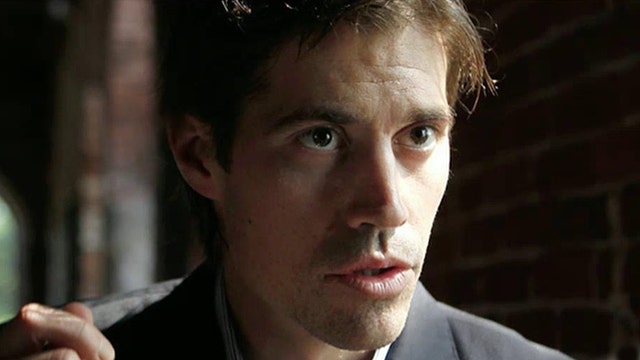Parents of James Foley claim government failed them
Family of ISIS victim speaks out after learning identity of hostage killer
ISIS claimed victory Wednesday for the Obama administration’s summer shift in allowing hostage negotiations with terrorists, posting an article in the radical Islamist group’s online magazine declaring, “it’s clear that violence is the only message they will respond to.”
The article, in the new issue of the Islamic State’s “Dabiq” magazine released Wednesday, is attributed to ISIS hostage and British photojournalist John Cantlie. Titled “The Blood of Shame,” it’s illustrated with a picture of President Obama and side-by-side covers of two newspapers: The Daily Telegraph, showing an ISIS executioner slitting a hostage’s throat, and The New York Daily News, showing Obama smiling in a golf cart.
Cantlie was kidnapped in Syria in November 2012, along with American journalist James Foley, who was later killed by ISIS. Before killing Foley, ISIS demanded a ransom from his family. U.S. government officials, however, threatened Foley’s family with prosecution if they raised the money to pay the terror group, Foley’s parents, John and Diane, told Fox News in September 2014.
“I mean, I don’t want to pay money to jihadist groups or other terrorists that continue their existence, but I sure do want my son home,” John Foley said.
But in June, after Foley’s beheading, the Obama administration signaled a minor modification in policy. While the U.S. government wouldn’t pay any outright ransom to terrorists, officials would be allowed to negotiate with terrorists. The government would also cease threatening families with prosecution for trying to pay a ransom.
“In a belated response to the executions of my former cellmates last year, America has formally changed its policy on ransoms for hostages,” Cantlie wrote in Dabiq. “It’s clear that violence is the only message they will respond to.”
Cantlie said Foley’s death “clearly had serious ramifications in the West.”
“Suddenly it was okay for families to discuss ransoms running into the millions of dollars when less than a year before this policy shift any folk that tried to do so – and Diane Foley and the others certainly tried – were threatened with prosecution by national security agents,” Cantlie wrote.


